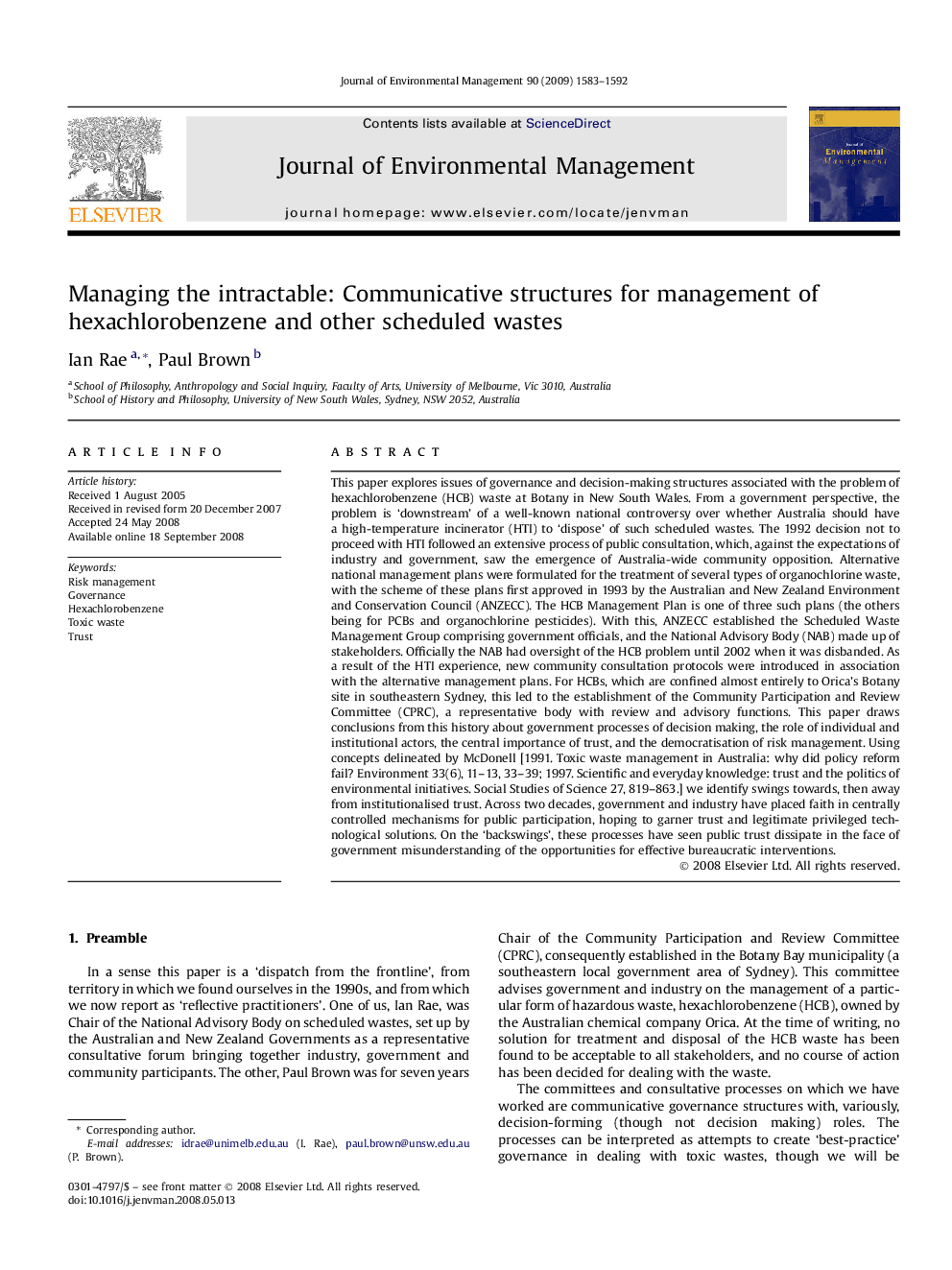| Article ID | Journal | Published Year | Pages | File Type |
|---|---|---|---|---|
| 1057794 | Journal of Environmental Management | 2009 | 10 Pages |
This paper explores issues of governance and decision-making structures associated with the problem of hexachlorobenzene (HCB) waste at Botany in New South Wales. From a government perspective, the problem is ‘downstream’ of a well-known national controversy over whether Australia should have a high-temperature incinerator (HTI) to ‘dispose’ of such scheduled wastes. The 1992 decision not to proceed with HTI followed an extensive process of public consultation, which, against the expectations of industry and government, saw the emergence of Australia-wide community opposition. Alternative national management plans were formulated for the treatment of several types of organochlorine waste, with the scheme of these plans first approved in 1993 by the Australian and New Zealand Environment and Conservation Council (ANZECC). The HCB Management Plan is one of three such plans (the others being for PCBs and organochlorine pesticides). With this, ANZECC established the Scheduled Waste Management Group comprising government officials, and the National Advisory Body (NAB) made up of stakeholders. Officially the NAB had oversight of the HCB problem until 2002 when it was disbanded. As a result of the HTI experience, new community consultation protocols were introduced in association with the alternative management plans. For HCBs, which are confined almost entirely to Orica's Botany site in southeastern Sydney, this led to the establishment of the Community Participation and Review Committee (CPRC), a representative body with review and advisory functions. This paper draws conclusions from this history about government processes of decision making, the role of individual and institutional actors, the central importance of trust, and the democratisation of risk management. Using concepts delineated by McDonell [1991. Toxic waste management in Australia: why did policy reform fail? Environment 33(6), 11–13, 33–39; 1997. Scientific and everyday knowledge: trust and the politics of environmental initiatives. Social Studies of Science 27, 819–863.] we identify swings towards, then away from institutionalised trust. Across two decades, government and industry have placed faith in centrally controlled mechanisms for public participation, hoping to garner trust and legitimate privileged technological solutions. On the ‘backswings’, these processes have seen public trust dissipate in the face of government misunderstanding of the opportunities for effective bureaucratic interventions.
